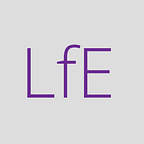Critical writing
R21–0892 MSc. Healthcare Management
ASYNC
Learning outcomes:
- Write authoritatively and demonstrate advanced knowledge
- Structure an assignment including an introduction, analysis and conclusion
- Integrate a range of principles and theories, using evidence to support own thinking
Introduction
Critical writing is an important skill to develop during and beyond your studies as it allows you not only to demonstrate your knowledge but also to analyse evidence and communicate your thoughts about that evidence. In this post, we will look at:
- Preparing to write and planning your approach
- Structuring your writing
- How to use the assessment criteria
- Integrating the work of others into your writing
- Developing flow in your writing by using the Academic Phrasebank
This short podcast outlines the key points that you need to consider when writing critically:
(all from 02 Writing) TK
4.0 Writing critically
2.4 Planning your academic writing
2.5 Using RAFT: Getting prepared to write
1.2 Introduction, Main Body and Conclusion
2.7 Using the assessment criteria
2.2 Integrating the work of others into your writing
2.3 The Academic Phrasebank
PLEASE EMBED HELP AND SUPPORT
SYNC
Introduction
Trainers to introduce themselves, the Library, and the ongoing support offered during the duration of their studies. The content covered in future sessions will be driven by learner needs — ask learners to think about this and mention we’ll return to this idea at the end of the session.
What does it mean to be ‘critical’ in academia?
We talk about ‘critical’ and ‘criticism’ in our work and everyday lives. We might be critical of a government decision, or read a restaurant critic’s review. But what does it mean to be critical in the context of your academic work?
Activity — add a one/two sentence statement on what you think it means to be ‘critical’ in your academic work. Posts are anonymous and we’ll pick up on some points for discussion.
Trainer to pick up on the Jamboard comments — asking ‘why’ questions (why is this important? etc.)
What being critical might look like
Unless you are set the unlikely task of writing a purely descriptive piece of work, you will be expected to demonstrate criticality, whether you are building an argument reflecting on your practice.
Before we look at those examples let’s consider ‘what critical doesn’t look like’ — and how easy it can be to fall into being overly descriptive without adding your own voice.
Example of what it doesn’t look like — descriptive writing:
“It is easy to produce a furniture sale catalogue, to collect facts and to describe what is, but not so easy to produce this ‘critical’ review. It involves questioning assumptions, querying claims made for which no evidence has been provided, considering the findings of one researcher versus those of others and evaluating.”
Bell, J. and Waters, S. Doing Your Research Project : A Guide For First-Time Researchers, London: McGraw-Hill Education, 2014.
From the assignment guidance:
Overall conclusion summing up the critical and reflective elements of the assignment:
“A conclusion about the relationship between leadership and the quality of patient care and any recommendations linked back to findings in the analysis of observation.”
Applied to an analysis of an idea or the literature:
- What does the evidence mean?
- How does the evidence relate to your argument?
- How does the evidence relate to other research?
- What are its strengths and weaknesses?
Applied to personal reflection:
- Going beyond what happened
- Why did it happen and why does it matter?
- How did it affect what happened next?
- What? So what? What now?
- How does what happened relate to your reflective model?
- How does what happened relate to theory and scholarly evidence?
Preparing to write
Bringing together large amounts of notes and linking these effectively to principles may seem like a daunting task. Taking time to plan your writing will help you to ensure that your thoughts are outlined in a logical order and supported by evidence. This will also help your reader to follow your argument.
You may want to use a mindmap or software such as MindView to help you organise your observations and notes from your reading.
Structure
There are 3 elements to the basic structure of critical writing: Introduction, Main body, Conclusion. Each of these serves a particular function for you as a writer and your reader.
The introduction outlines the area you have chosen to study and why it was selected. You should outline how you structured the observation undertaken.
The main body is where analysis of observations takes place. This is also where you bring in relevant literature to support your analysis
The conclusion is where you make recommendations based on your observations and analysis.
Introduction
An effective introduction should:
- Identify the area that you will observe and analyse
- Contextualise by explaining the approach you have taken and why you have taken it
- Engage your reader by highlighting the significance of this area of study
Main body
You can start each paragraph with a topic sentence which encapsulates the point you are to cover in that paragraph.
Present your observations, using relevant literature as evidence to inform and support your analysis.
To move smoothly from one point to the next, you can use transition sentences.
Academic phrasebank
The Academic Phrasebank is a useful resource that will help you to improve the flow of your writing, making it easier for your reader to follow. This can also help if you find yourself repeating the same words or phrases!
Conclusion
Your conclusion should make clear recommendations based on your observation and analysis. This is not the place to bring in any new evidence or theories but you can highlight where further information or research is needed.
Q&A and revisit Jamboard
Link to further resources
Developing the programme of support
Explain how the support will be developed across the duration of the programme and we’ll respond to learner needs.
